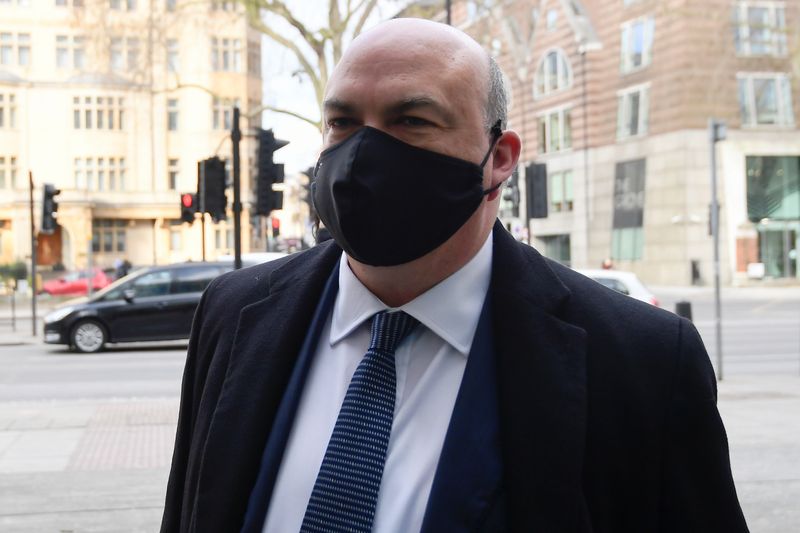By Greg Bensinger and Jody Godoy
(Reuters) -Mike Lynch, the wealthy tech founder once hailed as Britain's answer to Steve Jobs, will testify at his U.S. trial to defend himself against charges he defrauded Hewlett-Packard in the $11 billion sale of his software company Autonomy, his attorney said in court on Monday.
Federal prosecutors in San Francisco have accused Autonomy co-founder Lynch and former finance executive Stephen Chamberlain of scheming to inflate the company's revenue starting in 2009 and ending with HP (NYSE:HPQ)'s disastrous acquisition of the company in 2011.
Lynch "spun a fabulous tale," touting the British tech company's revenue and "pure software" business model, prosecutor Adam Reeves said in federal court in San Francisco.
"HP ate it up – they thought this kind of software company is exactly what they needed," Reeves said.
Meanwhile, Autonomy was secretly profiting from hardware resales and using improper accounting to meet analyst expectations at Lynch's direction, Reeves said.
After the deal, HP wrote down the value of the British company by $8.8 billion a year, saying it had uncovered serious accounting improprieties.
Lynch's attorney Reid Weingarten (NYSE:WRI) urged jury to be skeptical, saying that HP was "happy to pay" billions of dollars for Autonomy's software and rushed the due-dilligence process to shut out potential competitors.
The Cambridge-educated Lynch was focused on technology, and trusted Autonomy's finances to Sushovan Hussain, Autonomy's then-chief financial officer, Weingarten said.
"Mike had many sleepless nights worrying about Autonomy, but not about accounting," Weingarten said.
Prosecutors accuse Lynch and Chamberlain of padding Autonomy's finances through backdated agreements and "roundtrip" deals that fronted cash to customers through fake contracts. Part of the purpose was to entice buyers like HP, prosecutors said.
At the trial scheduled to run into late May, jurors may hear from dozens of witnesses, including Leo Apotheker, the former HP chief executive who was fired weeks after the Autonomy deal was announced.
Lynch faces 16 counts of fraud and conspiracy. Chamberlain faces 15 counts.
Both men are presumed innocent. The 12-person jury must reach a unanimous verdict to find either of them guilty.
Autonomy's implosion launched more than a decade of legal battles for Lynch.
HP substantially won a civil lawsuit against him and Hussain in London in 2022, and it is seeking $4 billion in damages.
Lynch had said HP did not know what it was doing with Autonomy, and was out of its depth in understanding his technology.
Hussain was separately convicted on U.S. charges in 2018. Months later, prosecutors brought charges against Lynch and Chamberlain.
Lynch fought his extradition, but was ultimately brought to the U.S. to face the charges after Britain's High Court refused him permission to appeal last year.
U.S. District Judge Charles Breyer, who is overseeing the trial, granted Lynch bail secured by a $100 million bond, but restricted him to a home in San Francisco under 24 hour guard.

Lynch's attorney has said in court that his net worth is around $450 million.
Hussain was convicted on 16 counts at a jury trial before Breyer in 2018. He was released from prison in January after serving a five-year sentence.